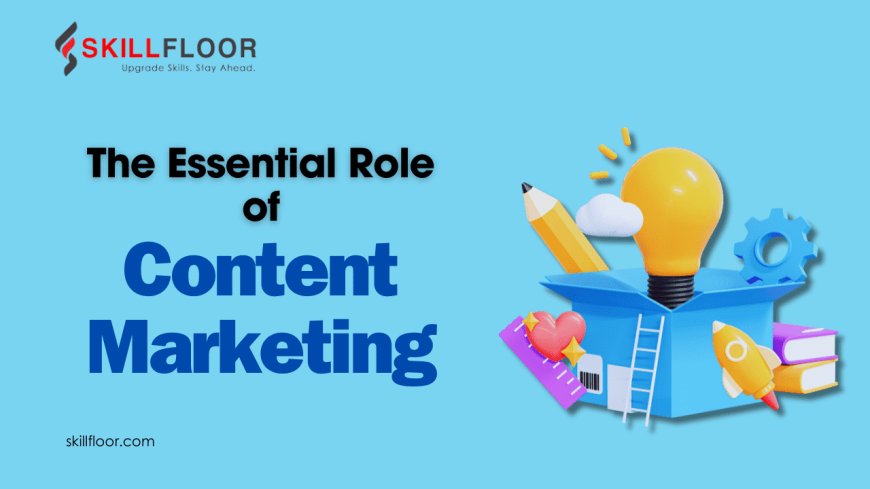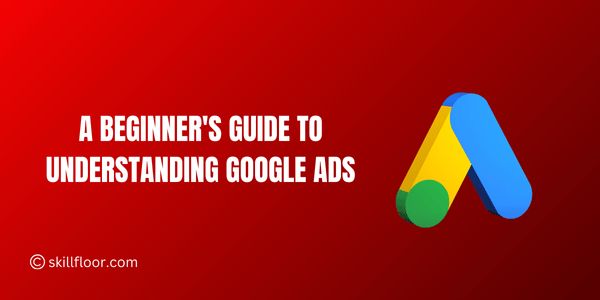Why Content Marketing Is Important for Business Growth
Explore how content marketing boosts business growth by enhancing brand visibility, engaging customers, and driving lead generation.

The main goal of content marketing is to produce and distribute good material that will draw in readers and keep them interested, ultimately resulting in sales. Are you interested in why content marketing is important for business growth? Building brand awareness, trust, and loyalty is beneficial, as it is necessary to succeed in the current competitive environment. Effective methods for content marketing can help you draw in and keep clients, which can advance your company's growth. Content marketing increases your online visibility and reach and drives natural traffic to your website when used in conjunction with SEO. In addition, content marketing has a very strong return on investment (ROI), with measurable increases in leads and sales. Improved brand reputation, increased conversion rates, and improved consumer engagement are all benefits associated with content marketing. Understanding why important content marketing is for business growth lets you produce audience-specific material that genuinely connects with them, setting your company up for long-term success.
Understanding Content Marketing
Employing content marketing as a strategy, companies create and share interesting information to draw in and interact with their target market. To build trust and encourage customers to take actions such as making a purchase or signing up for a service, the goal is to provide useful information that helps customers satisfy their needs or solve problems. Delivering constant, relevant data is the main goal of this approach, which encourages profitable client interactions and long-term business success.
key components of content marketing
Here's a table that outlines some key components of content marketing:
|
Key Components |
Description |
|
Blogs |
Written articles that provide valuable information, insights, and tips related to your industry or niche. |
|
Videos |
Visual content that can include tutorials, demonstrations, interviews, and more to engage and educate your audience. |
|
Social Media Posts |
Short updates, images, videos, and links are shared on social media platforms to interact with your audience and promote your content. |
|
Infographics |
Visual representations of information, data, or knowledge are intended to present information quickly and clearly. |
|
Ebooks |
In-depth guides, or books that provide extensive information on a particular topic, are often used as lead magnets. |
|
Webinars |
Live or recorded online seminars that allow for real-time interaction with your audience, are often used to educate and engage on specific topics. |
Building Brand Awareness
By providing useful information that attracts and keeps the interest of your target audience, content marketing increases visibility. Your reach will increase if you produce useful and timely material that is shared and discussed. In addition, using SEO strategies raises the ranking of your content in search engine results, which facilitates potential clients' ability to locate you. Constantly producing high-quality material is essential to content marketing. Your audience will remain interested and engaged if you regularly share informative material on your blog, social media accounts, and other platforms. Excellent content creates credibility and positions your brand as a trustworthy information source. Regularly producing valuable content can help you build long-lasting relationships with your audience, which will boost your visibility and growth.
Establishing Authority and Trust
Creating informative and useful material helps establish a position of authority in the field. By offering advice, suggestions, and practical knowledge, you establish trust with your audience and show that you are an authority. Sharing insightful, well-researched articles regularly shows your mastery of the sector and credibility as a news source. This strategy enhances your standing as an industry leader by drawing in more customers and encouraging them to come back for more.
Driving Traffic to Your Website
Increasing website traffic is one of content marketing's main objectives. By producing quality content, you draw in customers who are interested in your products. SEO and content marketing collaborate in this process. People can find your website more easily with the use of SEO, which raises the ranking of your content in search results. Creating high-quality backlinks, tweaking meta descriptions, and utilizing keywords are some SEO strategies that help your content marketing. When combined, these components aid in raising the exposure and traffic to your website.
Generating and Nurturing Leads
By bringing in potential clients with informative and relevant material, content marketing facilitates the creation of leads. You can capture their interest and encourage them to give you their contact details by attending to their needs and interests. One way to maintain leads with specific material is by sending out individualized emails, offering free eBooks or webinars, and frequently adding valuable content to your site. By keeping leads interested and guiding them through the sales funnel, these techniques eventually raise the likelihood that they will become clients.
Enhancing Customer Engagement
Personalized and interactive content engagement for consumers includes making captivating interactive films, polls, and quizzes. Customers feel more appreciated and engaged with your brand when they receive personalized content that matches their interests and behavior. Social media helps you reach a larger audience and communicate with customers directly, which makes it a valuable tool for content marketing. A more successful content marketing strategy includes utilizing social media ads to target particular demographics, sharing information on social media sites, and replying to comments. Keeping an eye on social media trends enables you to stay current and modify your strategy as necessary.
Supporting Sales and Conversions
At every point of the buyer's journey, content marketing offers helpful information that improves the sales funnel. Infographics and blog posts promote your business to potential clients during the awareness stage. eBooks, seminars, and case studies assist prospects in evaluating their options when they are considering them. Product demonstrations, client recommendations, and comprehensive guides help consumers make decisions during the decision-making stage. To assist prospects through the sales funnel and increase conversion rates, tailored content should be created for each stage.
Cost-Effective Marketing Strategy
Content marketing usually costs less than traditional marketing methods like TV ads or print media. Traditional marketing needs big upfront investments, while content marketing focuses on creating reusable content. The long-term benefits of content marketing include ongoing audience engagement, better brand awareness, and more organic traffic. Over time, it builds trust with your audience, leading to higher conversion rates and customer loyalty, giving you a good return on investment.
content marketing creates valuable content to attract and engage your audience. It boosts visibility, generates leads, and works with SEO to drive traffic. Interactive and personalized content, along with social media, enhances customer engagement. It supports each stage of the buyer’s journey, guiding prospects through the sales funnel. Often more cost-effective than traditional marketing, it provides long-term benefits like better brand awareness and customer loyalty. Overall, content marketing is important for business growth, helping build trust and lasting relationships with your audience.




























































